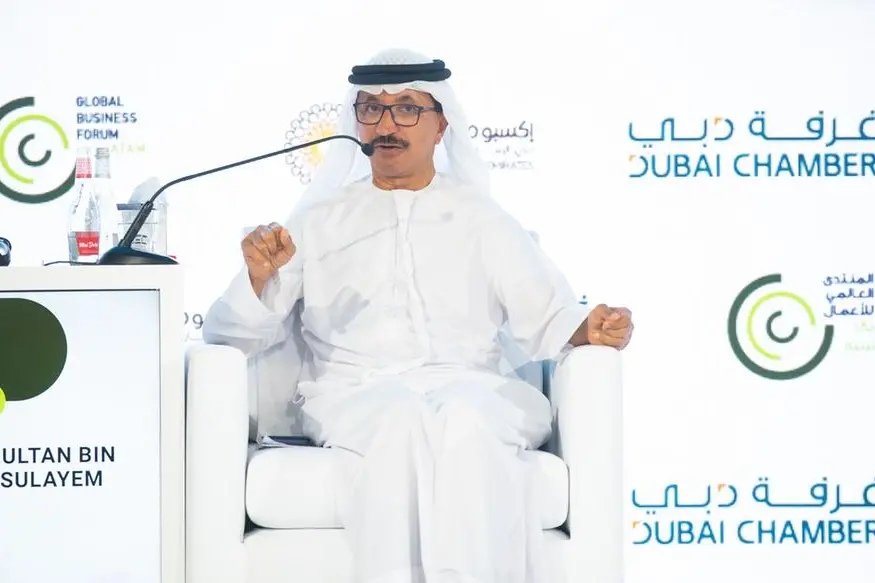PHOTO
There are disturbances and noises in the trade sector due to the Red Sea problems but trade is resilient and will find its way, UAE officials said on Thursday.
“Trade is resilient and will find its way to the market. People will eat, consume, sell and buy. This ensures that the Red Sea is a temporary issue. People talk about vessels that are not going but not about vessels that are going. There are many vessels that are continuing (operations),” said Sultan bin Sulayem, group chairman and CEO of DP World and the chairman of the Ports, Customs and Free Zone Corporation.
Sultan bin Sulayem is also chairman of the Dubai International Chamber.
While speaking at an annual event organised by Dubai Chambers, bin Sulayem said: “We have four ports in Red Sea – Djibouti, Somaliland, Egypt and Jeddah. There is still business going on. But naturally, there are disturbances and noises there but trade is resilient.”
He added that DP World, one of the world’s largest port operators, has invested billions of dollars to have access to markets so they can ship through different areas.
“Today, for example, to reach CIS countries, we can send goods from Pakistan. It takes eight days through amazing routes. We own many ports around the world so we have enough cargo to ship. These are alternatives. We need to invest more in the supply chain because this is the most undisruptive business. Everything is disruptive, but supply chain,” the DP World chairman said.
Global trade has been impacted due to the attacks by Houthis in the Red Sea.
The UN Conference on Trade and Development (UNCTAD) on Thursday said in the wake of a recent attack on shipping, the Red Sea's maritime trade routes through the Suez Canal have become severely disrupted further impacting the global trade landscape. This development compounds the ongoing disruption in the Black Sea due to the war in Ukraine, which has resulted in shifts in the oil and grain trade routes, altering established patterns.
“Ships are avoiding the Suez and the Panama Canals and seeking alternative routes. This combination translates into longer cargo travel distances, rising trade costs and insurance premiums. Furthermore, greenhouse gas emissions are also growing from having to travel greater distances and at greater speed to compensate for the detours,” it said.
Abdul Aziz Abdulla Al Ghurair, chairman of Dubai Chambers, said trade and business will continue and the UAE companies will find different routes to do business. “We hope this is a temporary issue and we hope this will be behind us soon and we will go back to usual trade,” Al Ghurair said during the media briefing.
Copyright © 2022 Khaleej Times. All Rights Reserved. Provided by SyndiGate Media Inc. (Syndigate.info).





















